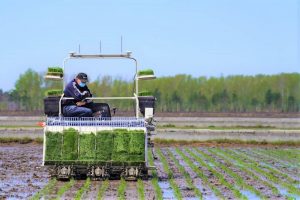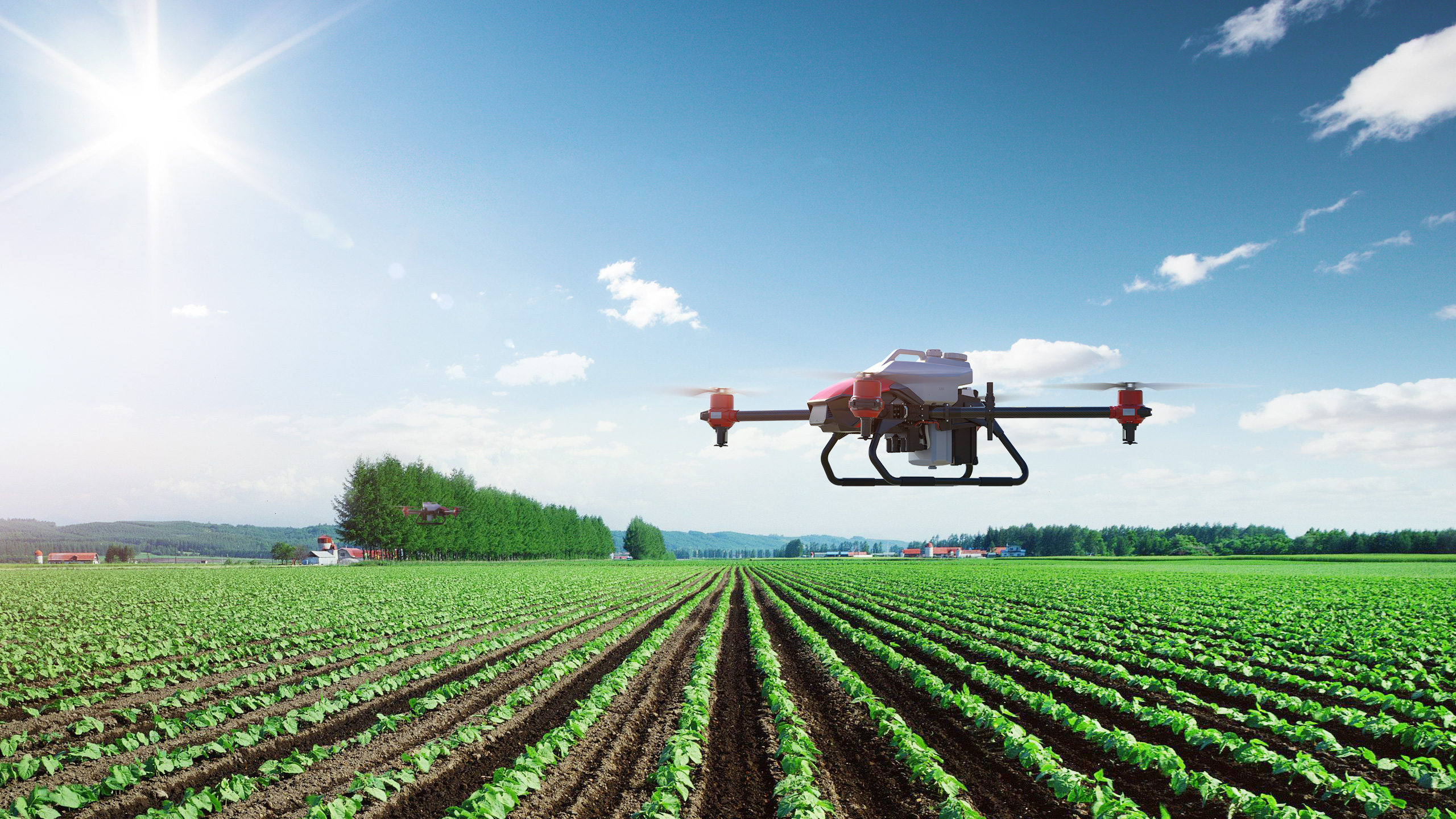Devastating floods and other catastrophic events brought about by global warming have convinced investors in China to back technology-focused solutions to bolstering food security
(AF) For farmers, April is the month of nurturing spring rains that spark the season’s first crops.
This April, however, China’s fields were showered with money – lots of it.
Scarred by devastating floods last year that ravaged 700,000 sq miles of prime agricultural land, Chinese and overseas investors are financing local technology startups to develop robots and other devices to boost farm and food production.
Also on AF
Tapping into opportunities in new water technologies
China bracing for more record-breaking floods
China plan to rebuild flood-ravaged Yangtze basin
Staggering amounts of capital have been sunk into projects that develop everything from drones that spray crops with precise amounts of treatments to apps that digitise, streamline and increase the import of beef. In April alone more than 7 billion yuan was raised from venture funds for such projects.
“Our society is turning to improve productivity, which ushers in growth opportunities for enterprise services,” said Jeffrey Li, managing partner of Tencent’s investment unit, said last year as investors began mobilising.
Mergers and acquisitions
Last month, China cemented its determination to harness technology to limit the impact of prevent more devastation by issuing guidelines to encourage social investment in the agri-tech sector. The move hopes to encourage modern planting and breeding, farm produce processing and circulation, agricultural technological innovation, smart agriculture, nurturing agricultural talents and rural infrastructure.
April saw 17 mergers, acquisitions and IPOs in the space, with initial sales raising anywhere between $15,000 and $700 million.
Same-day food delivery company Dingdong Maicai’s Series D financing was the biggest deal, raising $700 million from new investors DST Global and Coatue. Existing backers also joined, including Tiger Global Management, General Atlantic, CMC Capital, Capital Today, Sequoia Capital, Ocean Link and Hony Capital. Deals were concentrated in Jiangsu, Shanghai, and Liaoning, with 3 incidents each.
The three leading projects:
- Suzhou Jimu Robot Technology said it has raised hundreds of millions of yuan in Series C financing, led by Temasek, CITIC Agricultural Fund, and Bits x Bites. Baiguoyuan, Yuanhe Holdings, Chinese consortium Zhidao Capital, Chongshan Capital, Yongxin Ark also chipped in to help the company strengthen its R&D investment and accelerate domestic and foreign market rollout.
Its JiMu Robot aerial drone uses vision technology to autonomously spray crops. Its benefit is seen most clearly in hilly terrain, where land-based systems have deployment challenges. After extensive tests, the drones have been configured to carry out seed sowing, garden cleaning, pollination, deworming, nutrition, and crop monitoring. - Wanfu Meat, an import meat trading service provider, completed a Pre-A round that raised tens of millions of yuan. Established in 2019, it provides domestic imported beef wholesalers with full import services, bringing transparency to the process including overseas procurement and customs clearance.
- Through an app, Dingdong enables customers to order and receive groceries within half an hour. Its growth has been rapid: having completed six rounds of financing in as many months, the firm has built 1,000 front-end warehouses in the past four years and served 30 million users across the country.
Additionally, 67 billion yuan was raised in 27 financing rounds by food services companies. The vast majority of that was raised by Meituan Waimai which pulled in 64.8bn yuan through the issuance of convertible bonds. Among the buyers were Tencent, the company’s major shareholder.
More floods
The impetus for the growth of funding has been last year’s floods and predictions that such freak weather events will become more commonplace as the global warming intensifies
More than four million people were evacuated from areas around China’s bread-basket regions as flood inundated the fertile lands either side of the Yangtze River. At times, the surge of headwaters was so strong that engineers feared the river’s giant Three Gorges Dam would shift. The economic impact was great, with lost agricultural produce and industrial closures shaving an estimated 0.2% off annual GDP growth.
Climate change is increasing concerns about food security in China and accelerating the rush to develop agricultural production technology.
Flooding risks are rising every year, with heavy rains increasing 4% in each of the past five decades, Jennifer Turner, director of the Wilson Center’s China Environment Forum told Fortune magazine last year.
Rice purchases
National Food and Strategic Reserves Administration (NFSRA) data shows that by the end of October 2020, state purchases of indica and janica rice had fallen 14% and 12%, respectively, from a year earlier as farmers struggled to grow enough for the domestic market. The state was forced to double its corn imports to 8 million tonnes.
Coronavirus added its own pressures. With crops failing in China, state food buyers looked overseas to supplement the nation’s own production. But Covid-mitigating export and travel restrictions imposed by the nation’s traditional suppliers in eastern Europe prevented grain and corn silos from being restocked.
Problems associated with intensive farming have also brought problems. African swine fever reduced supplies of pork, China’s lynchpin protein commodity, by more than a half in 2018 as the disease spread through the world’s largest pig herd. Hog numbers have recovered since, but that’s only added more pressure on growers of corn, the beasts’ chief feedstock.
According to Traxcn, an innovation monitor, there are 214 Chinese agri-tech startups. Among them:
- Guangzhou-based XAG has raised $228m to build drones for local enterprises that offer pesticide-spraying services to individual farmers.
- FJ Dynamics has raised $29m to build seed-planting robots and other smart farm vehicles.

























